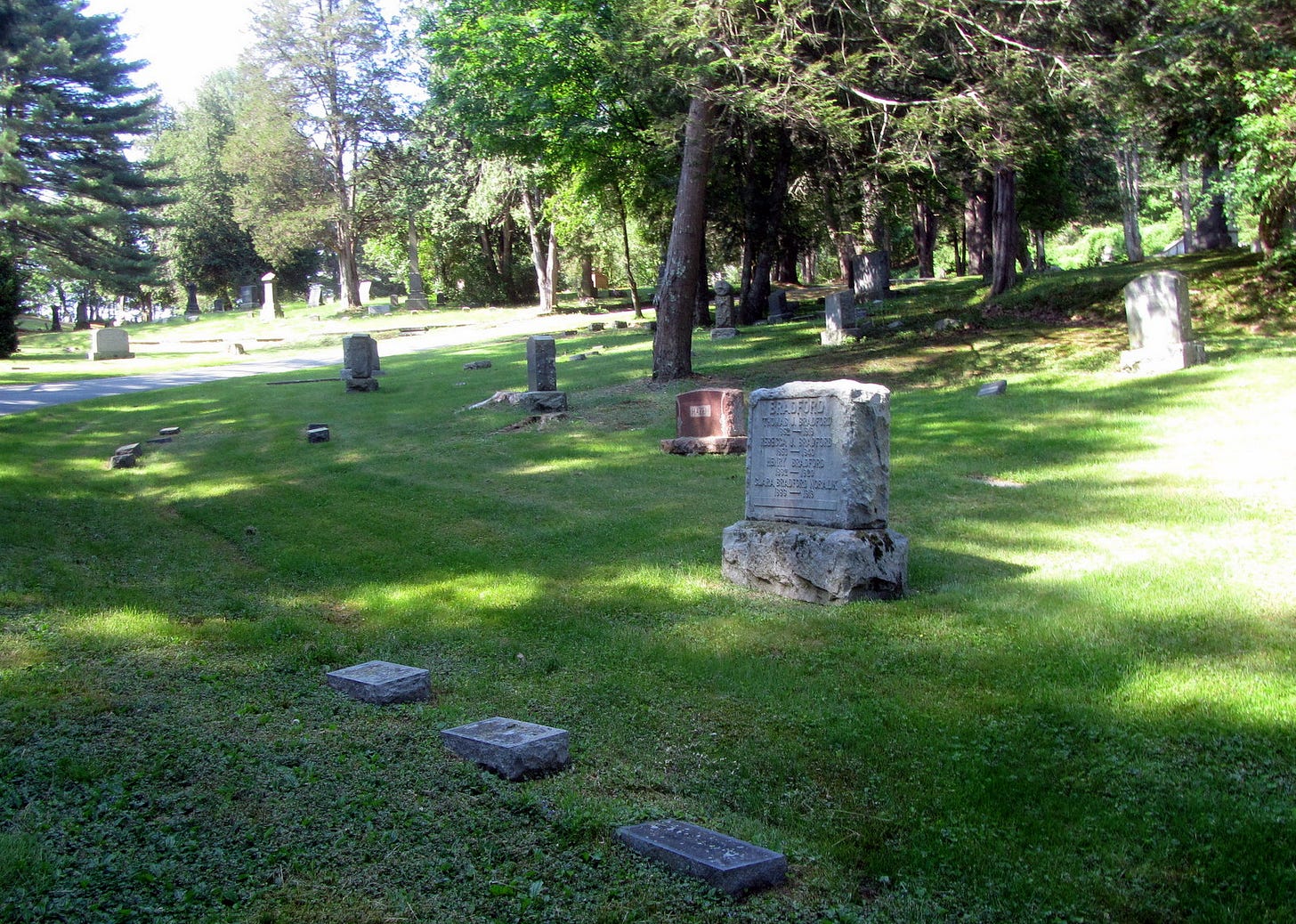Thinking that I would write about the ceasefire between Israel and Hamas over Gaza, the working title for this column until a few moments ago was, “Does land matter more than people’s lives, or do lives matter more than the land?” And then I read a story about Hamas coming out of the tunnels after the ceasefire, and the first thing they did, according to the account I read, was hunt down and arrest people whom they had identified as traitors and execute them.
This, of course, followed the attack almost exactly two years ago by Hamas fighters on Israeli settlements and a music festival near the border with Gaza, when they killed more than a thousand Israelis and took over two hundred people hostage and escaped back into Gaza. Then came the two years of war between Israel and Hamas, which consisted, in the main, of Israel bombing Gaza towns nearly flat in an attempt to root out and destroy Hamas, causing the deaths of at least 67,000 Palestinians and the wounding of another 170,000, according to Gaza’s health ministry.
Over two years, 80 percent of the buildings that stood in Gaza before the war have been either severely damaged or flattened entirely. Nine out of ten homes have been destroyed. Now that the fighting has stopped, aerial photos show almost unknowable destruction, seemingly nothing left of the place 2.1 million people called home.
While a meeting of international leaders yesterday discussed how the place may be rebuilt, Gazans streamed north from camps in South Gaza, returning to their destroyed homes in towns from which they had been banished. Gaza, largely in rubble, is still their home.
Sitting here in a country that is about to celebrate the 250th anniversary of its founding, what is to explain the attachment of people to this ancient land that has been fought over for nearly three millennia? Jerusalem, the capital of what is now Israel, was ruled over by a series of ancient civilizations, beginning with the Israelites, more than 1,000 years BC -- Before Christ, as historians have agreed that ancient and modern time is measured. Then came the Assyrians, who ruled for a couple hundred years before being conquered by the Babylonians, followed in quick measure by the Persians. Another couple hundred years would pass before Alexander brought his Greek army to run the Persians out. The Romans were next, followed by the Byzantines, and then several hundred years of Muslim rule before the Crusaders invaded from Europe and controlled things until the Ottomans arrived around 1500 and took over Jerusalem and all of what is now Israel until the 20th Century brought modern wars and partition by Great Britain, followed by World War II and soon thereafter, Jews displaced the British and a whole lot of Palestinians and established modern Israel.
All of this over a piece of land about the size of New Jersey at the time Israel declared its independence.
I wrote a sentence above about “civilizations” controlling Jerusalem and what is now Israel. Civilization is just a word for the people who went to war against other people and won the right to say they controlled that land. It’s hard reading history or even studying the history of war as I did at West Point, to see what we’re talking about. I was in Israel and Lebanon in 1974-75 to write about terrorism, and during that time, I visited the Old City of Jerusalem and went to the Western Wall and the Temple Mount. There was a large plaza that you crossed to reach the Western Wall at that time. To the left of the Wall, an archaeological dig was in progress. You could pass through an opening in a wall and look down into a hole in the ground and see the progress of the dig, lit by electric lights. There was a footpath that crossed another footpath about fifty feet down.
A few years later, I was in Jerusalem on another story and visited the Old City again. This time, they had dug up the plaza in front of the Western Wall and exposed the history of the place. At the bottom of the dig, you could see some of ancient Jerusalem, from the time of the First Temple. Rooms of a house, made of stone and mud, were visible, and a little to the right of those rooms, about 20 feet higher, was the vaulted bedroom of a Roman home. You could clearly see that one civilization – one conquering people – had built their homes on the ruins of the homes occupied by people who predated them by hundreds of years.
Today, the plaza is flat again, but you can visit the rooms of the ancient city underground. They have uncovered a ritual Jewish bath from Herodian times that was supplied with water carried by an ancient aqueduct from Bethlehem, miles away from Jerusalem. The same aqueduct was the primary source of water for Jerusalem until the British Mandate 2,000 years later.
That is how long Jerusalem, and other parts of the Middle East, have been fought over. For centuries and centuries, towns were built and destroyed and rebuilt, just as Jerusalem was. Invaders came in from tribes that lived along the Tigris River in what is now Iraq. They came from the town of Aleppo in what is now Syria – thus, the Assyrians. The people of Ur, south of Babylon, conquered the people of Aleppo, and then they headed south and went through what is now Syria and Lebanon to Jerusalem. They were conquering each other, and enslaving one another, for centuries. It was always the same. One ruler wanted what the other ruler had, so they made armies and went after each other’s land.
Their armies were their people. They spent the lives of their people to take the land of the rulers they considered their enemies. Tens, perhaps hundreds of thousands died in these wars that went from before the time history was recorded, right on through recorded history, continuing for two thousand years more, with pagan religions being formed and then supplanted by religions with leaders such as Christ and Muhammed, and still in modern times an army calling itself Isis, in attempting a new caliphate, set out to conquer people in Iraq called the Yazidis, who live along a mountain range near the Syrian border, simply because they do not follow the Muslim faith.
It’s still going on, the lusting after land, the willingness to kill people because they occupy land you want, or they follow a different god than you do, or they follow no god at all, or all three.
When I was in Israel and Lebanon in the mid-70’s, I got into discussions with Israelis and Palestinians about the most recent struggle over the land I was visiting. Everyone on one side was right. Everyone on the other side was wrong. There were stories and there were myths and there was history, and no matter who told the stories or believed in the myths or recounted the history of the place, both recent and ancient, the argument, which went back more than 2,000 years, sought to explain who was right and who was wrong.
But it didn’t work. If it worked, there would not be almost three millennia of wars and death over the same pieces of land for which wars are still being fought today. Every once in a while, usually when I was talking to someone from either side who was smart and inquisitive and well read, I would start a sentence with, “Have you ever thought of it this way…” or I would say, “What if they did this, and you did that, and wouldn’t that…”
But it wouldn’t. I heard a word all the time back in the 70’s that I heard this morning on NPR when a guy from the Arab League was being interviewed, but he could have been a guy from the Israeli government, or from an Israeli university, or from a Palestinian faction in Lebanon or he could have been a Sunni or a Shiite or a Christian, because it didn’t really matter who he was. It didn’t matter because the word was the always same for everyone: Conditions. If conditions were understood, or if conditions were met, or if conditions were taken into consideration, or if conditions were different. Always conditions, because conditions are what keeps the whole thing going.
It doesn’t make any more sense if you call it hate or intolerance, because it’s always the same. There are always lands and there are always people and there are always leaders who are willing to sacrifice people for land, to kill their own people so they can take over the other guy’s land. Putin is doing it right now in Ukraine. According to something called the Geneva Academy of International Humanitarian Law, there are more than 100 armed conflicts going on in the world at this moment: 45 in the Middle East and North Africa; 35 in Africa; seven in Europe; 21 in Asia; and six in Latin America. I was scrolling through my newsfeed yesterday when I came across a story about fighting breaking out on the border between Pakistan and Afghanistan. It’s an argument over whose land on the border is whose, naturally. That’s a new one not even mentioned in the Geneva report.
Nobody wishes for death; nobody in their right mind, anyway. Today here in Milford, we attended the funeral and burial of a good friend’s husband, a veteran of Vietnam who died from complications of being exposed to Agent Orange. The Army sent a two-man team to pay last respects to the veteran of one of our nation’s wars. I would say “one of our nation’s tragic wars,” but they’re all tragic, aren’t they? One of the soldiers blew “Taps,” and then they removed the American flag from the casket at the gravesite and folded it and handed the flag to the widow, our friend.
It was both sad and beautiful. The day was overcast. The Milford Cemetery runs up the side of a small mountain called The Knob that overlooks the town. The cemetery is hilly and crowded with graves and serene. As we stood there listening to the mournful notes of “Taps,” I thought of the body of our friend’s husband who had fought one of our wars and ended up paying for his service with his life, and I thought of his body going into the Pennsylvania ground.
Thousands of years of bodies and millions of graves, marked and unmarked, and all the destruction that lies atop and under the earth, as it does in Jerusalem and all around the world where history has exacted its price in the blood of human beings whose lives were spent in the name of land, anybody’s land, anywhere, it doesn’t matter where, or why, it is always bodies and it is always land and it always means that someone, a lot of someones, must perish.
I’m sure that as a species we are not born with a death wish, but we have lived our lives for thousands of years as if we are, and that characteristic of human beings is a real tragedy.









